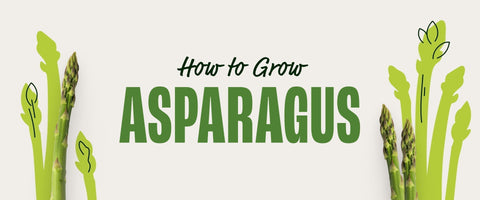Grow Better from the Ground Up
Soil is a living ecosystem, an interaction between living microorganisms, plant roots, structured solids, water, air, and nutrients. The USDA defines soil health as the continued capacity of soil to function as a vital living ecosystem that sustains plants, animals, and humans. Healthy soil means healthy gardens.
Every teaspoon of soil is home to billions of microorganisms—yes, billions! The range of organisms in our soil represents about 25% of the world's biodiversity. Soil health depends on microorganisms working as a team, each playing an essential role. These microbes band together to protect plants from disease, recycle nutrients, improve water infiltration and retention, and build soil structure. Some of the soil's star players include bacteria, fungi, nematodes, worms, and insects.
Support "Team Soil" with Organic Matter
What is organic matter?
Organic matter includes animals and plants that are living, dead, or in decomposition.
Organic matter is a major contributor to soil health, and Nourse Farms plants benefit from increased organic matter in the soil. We recommend that your soil have at least 2–3% organic matter, but the more, the better! The goal is for garden soils to have 5–10% organic matter for best productivity.
Increased organic matter provides multiple benefits to the soil:
Organic matter strengthens aggregate stability, enhancing soil aeration, improving water infiltration, and reducing runoff. Stable soil aggregates resist rain, wind, and tilling degradation.
Organic matter amendments improve aeration and drainage in heavier, clay-like soils, making the soil looser, less sticky, and easier to work. In sandy soils, they improve the soil's ability to hold water and nutrients.
As organic matter breaks down, it boosts nutrient availability and releases nutrients like nitrogen, phosphorus, potassium, calcium, and magnesium into the soil.
Organic matter increases the soil's cation exchange capacity (click here to read more in our previous blog post, The Basics (&Acids) of pH). Increased organic matter improves the soil's buffering capacity, also known as its resistance to pH change, aiding in stabilizing soil acidity or alkalinity.
Organic matter provides a vital food source for the invertebrates, bacteria, and fungi living in the soil, encouraging healthy microbial life. Increased organic matter amplifies the microbial biodiversity, which may help suppress pests and diseases.
3 Common Sources of Organic Matter
Compost
Compost is organic matter that has been broken down by naturally occurring bacteria, microorganisms, and insects into a nutrient-dense, soil-like product. Commercial compost is available for purchase at garden centers, or you can create your compost mix by utilizing yard trimmings and food scraps (click here to read more in our previous blog post, Compost 101). Add compost to garden beds at any time of the year as a top dressing or mulch.
Worm castings
Worm castings, also known as worm poop, is an organic matter that is 100% humus*. Worm castings provide soil nitrogen, phosphorus, potassium, and micronutrients such as magnesium, iron, zinc, copper, sulfur, and calcium. Additionally, they contain microbiological colonies that work hard to fend off soil-borne disease pathogens and repel insects. Worm castings support plant growth and overall health, and can be used fresh, as they will not burn plants. Lightly work worm castings into the soil at any time of the year.
*Humus is the stable part of organic matter that has undergone the process of decomposition into stable structures. Humus is the liaison between larger soil particles like sand and silt.
Manure
For thousands of years, farmers have utilized manure as a crop fertilizer. One study reveals that early agriculturists used manure on their crops 8,000 years ago. Manure is the waste products of animals and is rich in nitrogen, phosphorus, and potassium.
Lightly incorporate manure into the soil. Adding animal manure to gardens in the fall is a best practice to reduce human pathogen risks; apply manure at least 120 days before harvesting crops.
Note: Never use fresh manure as a soil amendment. It takes months to years for manure to age. Never add dog, cat, or pig manure to your compost pile or garden soil.
More Ways to Support "Team Soil"
Avoid Soil Compaction
Compaction leads to runoff, erosion, and poor water infiltration. To minimize compaction, reduce or eliminate tilling, and use designated walking paths around planting beds. Tread and till with care!
Avoid or Limit Chemical Use
A well-tended garden rarely requires pesticides. Needlessly spraying pesticides can kill beneficial soil microbes and insects and may harm other wildlife. Before spraying chemicals, consider pesticide alternatives, hand-pick larger bugs, choose disease-resistant varieties, and/or use water from a garden hose to remove insects from plants.
Cover Crops
Cover crops can improve soil structure, enhance nutrients, reduce erosion, and promote biological activity. To add nitrogen to the soil, try leguminous cover crops like hairy vetch, clovers, and field peas. For weed suppression, try fast-growing cover crops like Sudan grass, buckwheat, and Japanese millet.



